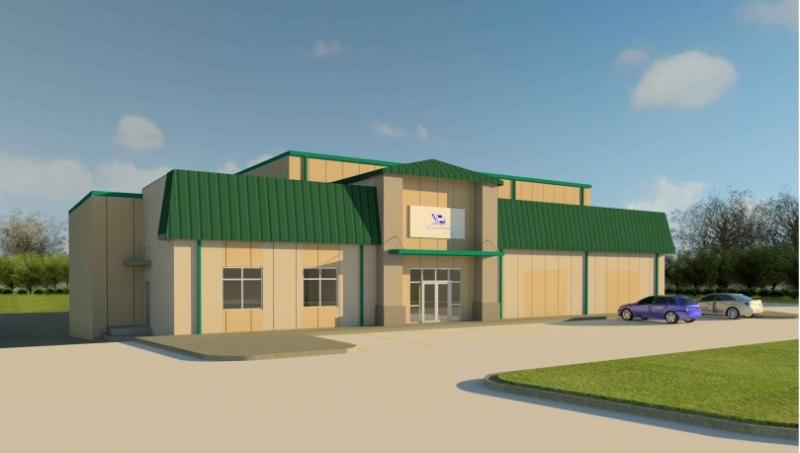New slaughterhouse could bring more fresh local meat to Dartmouth
When Geoff Kinder's pigs, goats, and cattle are ready to be slaughtered, he loads his animals into his aging truck and makes a nearly two-hour drive from Round the Bend Farm to Groton.
He makes trips to the federally-inspected Blood Farm slaughterhouse once a month, as it is one of the closest to Dartmouth. The owner of Paradox Acres does not have much choice, as his animals need to be slaughtered at a USDA-inspected facility so he can sell his meat directly to customers.
But a new project to bring a humane and USDA-inspected slaughterhouse to Westport could change all of that. In addition to eliminating the time-consuming and costly trips, it will allow him to make slaughterhouse trips more often.
“With more smaller trips I can give customers fresher meat, rather than making trips less often,” Geoff said.
The Livestock Institute of Southern New England, a non-profit organization made up of farmers from across the South Coast, is currently building its 10,000 square-foot Meatworks processing facility building on Route 6 in Westport.
It is anticipated to handle 2,000 large animals in its first year of operation. Situated on a 10-acre parcel of land, there is enough room for possible future expansion to handle up to 10,000 animals per year.
The facility could be a game-changer for farmers in Dartmouth and beyond, explained Andy Burnes, the organization's president and owner of Jordan Farm in Dartmouth.
Plans for bringing a federally-inspected slaughterhouse to the region began in 2007, shortly after Abreu’s Custom Slaughterhouse, once located on Bakerville Road, shut down after its owner retired.
With a new non-profit established in 2014, Burnes said the group had three primary objectives: build a slaughterhouse on the South Coast with high animal welfare standards, high food safety standards, and traceability of livestock and products as they progress through the facility.
“Our belief is that those qualities are not readily available in existing processing facilities for farmers in our region,” Burnes said.
Farmers have two choices in slaughterhouses: USDA-inspected facilities, which allows farmers to sell meat to customers through farmers markets and in restaurants and supermarkets, and custom slaughterhouses. Those facilities are overseen by local Boards of Health, which limits meat sales due to federal regulations. Although there are several custom slaughterhouses nearby, none are USDA-inspected.
The nearest USDA-inspected facilities require farmers to load up their cattle and drive for several hours to northern Massachusetts or southern Rhode Island.
“If you’re a small producer, it’s hard to deal with the distance,” Burnes said, noting that he usually takes his hereford cattle to Adam Farm in Athol or a larger slaughterhouse in Vermont.
Burnes said the facility will open in June 2018, but bookings are already being accepted for interested farmers, many of whom are eagerly awaiting the new facility.
Thinking broadly, Burnes said the project has the potential to further local agriculture, not just in the availability of fresh meat, but also in the number of farmers in the area previously held back by uncertainty in the butchering process.
“We think there will be a resurgence of what we call backyard farmers,” Burnes said, explaining that the new slaughterhouse could encourage more people to raise small groups of cattle in their backyards or on smaller farms.
To support that mission, The Livestock Institute also runs educational programs for budding farmers. Earlier in the month, the institute hosted an introductory class in pasture management in Rhode Island, and more programs are scheduled. The institute will also host its second Southern New England Livestock Conference on January 28 at Bristol County Agricultural High School.
For more information about the slaughterhouse, and for booking information, visit thelivestockinstitute.org.













